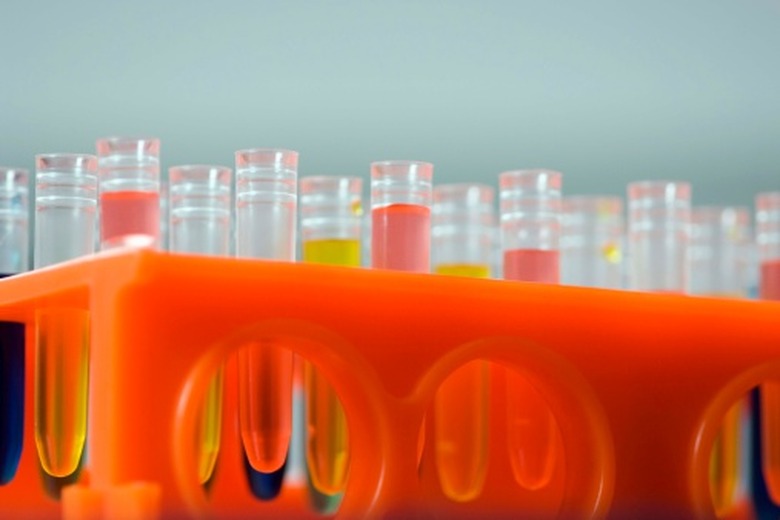What Are Oxidants?
Antioxidant has become a household word synonymous with good health. In turn, oxidant could logically refer to a substance that causes bad health. But the term oxidant actually has different implications depending on the nature of the subject matter; for example: biological versus industrial systems. This is because at its most basic level, oxidizing substances accept electrons. Thus, just as the substances and processes involved will vary, so will the connotation of oxidant.
TL;DR (Too Long; Didn't Read)
Oxidants, or oxidizing materials, "take" electrons from other substances in their proximity. This can be a beneficial or harmful process.
Oxidizing Agent
Oxidizing Agent
An oxidant, also called an oxidizing agent, can express itself in the form of a single molecule, a compound (a mixture of substances) or an element. An oxidant usually appears as a molecule when its uses pertains to biological functions. These biological oxidants form during various types of intracellular processes such as metabolism and inflammatory reactions. Oxidants generally appear as a compounds when it pertains to chemical functions. Chemical oxidants can be artificially created through industrial or manufacturing processes, such as with hydrogen peroxide or ferric salt. Oxidants expressed as natural elements—such as oxygen or iodine—can pertain to either biological or chemical functions.
Oxidants or oxidizing agents accept electrons, a process that cause "oxidation" on a biological or chemical level. Previously, the term oxidation was applied to reactions that exclusively involving oxygen. However, today, scientists acknowledge that oxidation can be occur with or without the presence of oxygen. Whether or oxidation is "good" or "bad" depends on the nature of the reactions and their consequences.
Chemical Oxidation
Chemical Oxidation
Chemical oxidation occurs when an element loses one or more electrons through contact with and reaction to an oxidant, for example: when iron comes in contact with oxygen (an oxidant) and moisture. The reaction corrodes the iron and produces a red-orange residue, a process called rusting.
Oxidation on a chemical level is also used commercially through "oxidation technologies." These technologies use various substances to oxidize others. For example, the process can treat contaminated soil and wastewater.
Biological Oxidation
Biological Oxidation
Like chemical oxidation, biological oxidation occurs when electrons leave a substance. However, the processes diverge with biological oxidation taking place on a different atomic or molecular level. For instance, glucose oxidizes when hydrogen atoms leave the substance, and combine with an oxidant, a process of cellular respiration. This type of biological oxidation is a beneficial process that creates energy for an organism.
However, other forms of biological oxidation can harm an organism. These interactions involve oxidants that damage biological material such as DNA and protein, contributing to degenerative diseases. These oxidants appear by natural processes such as an organism's metabolism. Negative forms of oxidation such as this, have generated a plethora of health information pertaining to substances that can help offset the interactions. These counteracting substances are called antioxidants.
Good Antioxidants
Good Antioxidants
The antioxidants that combat the effects of harmful biological oxidation come in the form of compounds; and appear in various foods, herbs and extracts. A few of these antioxidants include vitamins C, A and E; selenium; beta carotene and grape seed extract. These and other can be obtained by consuming fruits, vegetables and nutritional supplements.
Cite This Article
MLA
Sigust, Andrea. "What Are Oxidants?" sciencing.com, https://www.sciencing.com/oxidants-8324835/. 19 May 2018.
APA
Sigust, Andrea. (2018, May 19). What Are Oxidants?. sciencing.com. Retrieved from https://www.sciencing.com/oxidants-8324835/
Chicago
Sigust, Andrea. What Are Oxidants? last modified March 24, 2022. https://www.sciencing.com/oxidants-8324835/
